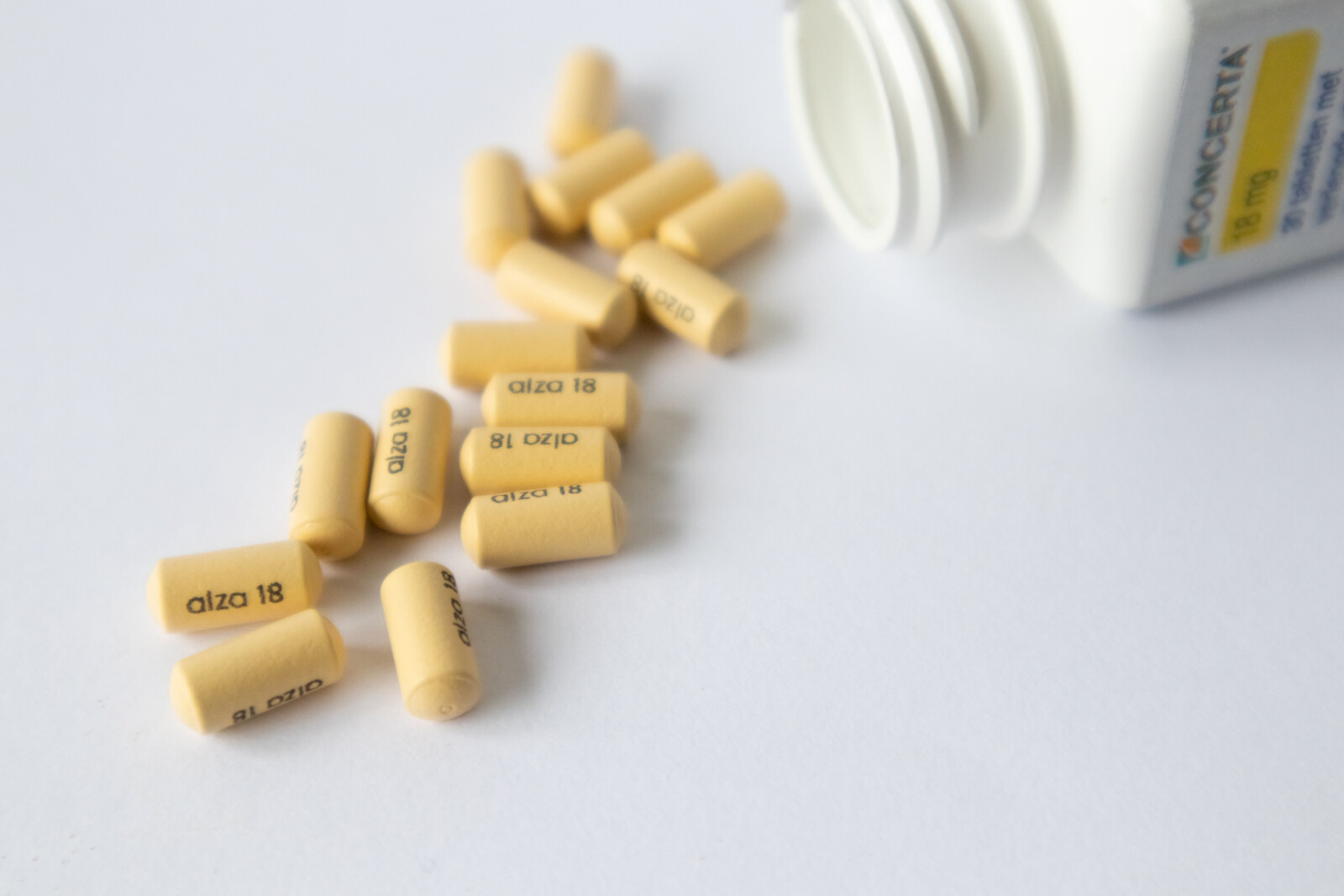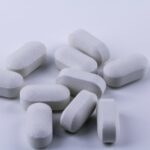Controversial Drug Vioxx Causes Global Health Crisis
In 2004, the pharmaceutical industry was rattled by the global recall of Vioxx, a widely used NSAID. This recall occurred after a study revealed that high doses of the drug tripled the risk of cardiac arrest. This article dissects the events leading to this healthcare crisis, the role of the FDA, and the lasting impact of the Vioxx controversy on the drug industry.

Key Takeaways
- Vioxx, a prescription medication used for arthritis, acute pain, and other conditions, was voluntarily withdrawn from the market by Merck in 2004 due to its association with increased cardiovascular risks and serious gastrointestinal bleeding.
- The FDA faced criticism for its handling of Vioxx and its relationship with Merck, with questions raised about expedited review processes and ignored danger signals.
- The withdrawal of Vioxx resulted in more stringent rules imposed by the FDA on all manufacturers, emphasizing the importance of ensuring the safety of selective and nonselective NSAIDs.
- Approximately 2 million people worldwide were still using Vioxx when it was pulled from the market, highlighting the widespread impact of the drug and the global health crisis it caused.
The History of Vioxx and Its Global Impact
Vioxx, a selective Non-Steroidal Anti-Inflammatory Drug (NSAID) that was once lauded for its efficacy in treating various pain-related conditions, has left an indelible mark on the global health landscape due to its subsequent withdrawal from the market and associated health crises. The economic impact was profound, with Merck, the manufacturer, incurring billions in settlement costs. Such costs, coupled with the loss of trust, significantly impacted their market standing. The public health response was swift and decisive, with a renewed focus on stringent drug approval processes and post-market surveillance. The Vioxx story underscored the need for rigorous safety measures, transparent data sharing, and robust regulatory oversight in the realm of global health policy and pharmaceutical practices.
Understanding the Differences Between Selective and Nonselective NSAIDs
To comprehend the controversy surrounding Vioxx, it is essential to understand the differences between selective and nonselective NSAIDs, as well as their respective impacts on human health. Selective NSAIDs, such as Vioxx, inhibit only COX-2 enzymes, reducing inflammation and pain without causing the gastrointestinal side effects linked with nonselective NSAIDs. This understanding of the benefits of selective NSAIDs led to their increased utilization. However, the controversy arises when exploring the risks associated with nonselective NSAIDs. Nonselective NSAIDs, like aspirin and ibuprofen, block both COX-1 and COX-2 enzymes, which can lead to stomach ulcers and gastrointestinal bleeding. While they are effective in managing pain, their safety has been questioned due to these potential side effects.
The Many Uses of Vioxx
Despite its controversial reputation, Vioxx served multiple purposes in the medical sphere, including the alleviation of arthritis symptoms and management of acute pain in adults, and it was also employed to treat painful menstrual cycles. However, the controversy surrounding Vioxx's approval and its subsequent widespread use had a significant impact on public health. The drug was marketed as a solution for those suffering from chronic pain, but reports of increased cardiovascular risk led to its voluntary withdrawal from the market. The FDA's expedited approval of Vioxx, despite emerging safety concerns, intensified the public health crisis. The controversy underlined the necessity for stringent pharmaceutical regulations to safeguard public health, highlighting the potential risks associated with prioritizing therapeutic benefits over comprehensive safety evaluations.
The Withdrawal of Vioxx From the Market
After amassing global usage and stirring up a health crisis, Merck made the decision in September 2004 to pull Vioxx off the shelves, and this move underscored the severe implications of the drug's adverse effects on patients' cardiovascular health. This significant withdrawal sent shockwaves throughout the pharmaceutical industry and healthcare field, leaving a profound impact on patient trust. Patients worldwide had relied on Vioxx for pain relief, and the sudden recall left many feeling betrayed and skeptical towards drug manufacturers. The role of pharmaceutical companies in drug recalls came under scrutiny, as the safety of their products is paramount. The Vioxx case highlighted the need for stringent measures in drug development, approval, and post-marketing surveillance, further emphasizing the critical role these companies play in global health.
Unveiling the Potential Risks of Vioxx
Numerous studies have exposed the potential risks of Vioxx, and these concerns, combined with real-world patient experiences, have highlighted the drug's association with increased cardiovascular hazards and severe gastrointestinal complications. The potential long term effects of Vioxx include a heightened risk of heart attack and stroke, even among those without a prior history of heart disease. This presents a significant global health threat, given the millions of patients worldwide who have been exposed to the drug. Notably, the Vioxx debacle has eroded public trust in pharmaceutical giants and regulatory bodies, raising questions about their commitment to patient safety over profit. This loss of public confidence necessitates a stronger commitment to transparency and stringent safety evaluation in future drug approvals.
The Fda’s Role and Relationship With Merck
In the midst of the global health crisis prompted by the controversial drug Vioxx, the role of the Food and Drug Administration (FDA) and its relationship with the drug's manufacturer, Merck, has come under intense scrutiny. Concerns have been raised regarding the FDA's handling of clinical trials for Vioxx, with allegations of expedited processes that may have overlooked critical health risks. Simultaneously, allegations of data concealment by Merck have cast a shadow over the drug's approval process. Critics argue that Merck may have intentionally hidden or misconstrued data related to Vioxx's cardiovascular safety. These instances underscore the need for a more stringent regulatory framework to govern the approval and post-approval surveillance of drugs, ensuring patient safety above all.
Controversies Surrounding the FDA’s Approval of Vioxx
The FDA's approval of Vioxx, a selective NSAID, is a topic of international debate and controversy due to concerns over expedited review processes and allegations of data manipulation. The FDA's handling of Vioxx controversy is widely criticized for perceived laxity, with critics asserting that danger signals were ignored. The approval process was expedited due to the drug's potential therapeutic advantage, raising questions about the rigor of the agency's review. Compounding the controversy, allegations of data concealment by Merck, the manufacturer of Vioxx, have surfaced. These allegations suggest that Merck may have suppressed or misrepresented clinical data to promote the drug's cardiovascular safety. These controversies have sparked a global health crisis, highlighting the need for transparency and rigorous review in drug approvals.
The Aftermath of Vioxx’s Withdrawal on FDA Regulations
Following the high-profile withdrawal of Vioxx from the global market, there was a significant impact on the regulations enforced by the Food and Drug Administration (FDA). The aftermath was profound, leading to a comprehensive review of FDA protocols for drug approval and monitoring. The effectiveness of FDA regulations came under scrutiny, leading to more stringent rules for pharmaceutical manufacturers. This event also had a considerable impact on patient trust in the FDA and drug manufacturers, necessitating increased transparency and more robust safety measures. The Vioxx case served as a reminder of the critical role the FDA plays in maintaining public health, reinforcing the need for continuous improvement in its regulatory processes to ensure the safety and efficacy of approved drugs.
The Global Impact of Vioxx’s Recall
Over 2 million people across the globe were affected when Vioxx, a widely used prescription medication, was abruptly withdrawn from the market in 2004. The recall highlighted deficiencies in the global healthcare system response, calling into question the processes for drug approval and the handling of safety concerns. In the wake of the crisis, healthcare systems worldwide were forced to reassess their approach to drug safety monitoring and patient information dissemination. The recall not only impacted individuals who relied on Vioxx for pain relief, but also significantly damaged public trust in pharmaceutical companies and regulatory bodies. A concerted effort was required to restore confidence, emphasizing transparency, patient safety, and rigorous post-marketing surveillance in the pharmaceutical industry.
The Success and Pitfalls of Vioxx in the Market
Despite its initial market success, Vioxx's journey was marred by controversy and consumer distrust, leading to a significant impact on global health. The drug showed promising market performance, becoming Merck's second-biggest drug. Its selective nature, offering fewer gastrointestinal side effects, led to its popularity in pain management. However, its journey soon hit rocky terrain. Questions about its cardiovascular safety arose, causing consumer distrust. Research suggested an increased risk of heart attack among Vioxx users, prompting a review of its safety profile. This controversy, coupled with alleged concealing of data by Merck, tainted Vioxx's market image. The drug was eventually withdrawn from the market globally, marking a dramatic end to its initially promising journey. Despite its pitfalls, Vioxx's influence on pain management remains significant.
Unraveling Merck’s Marketing Strategies for Vioxx
Under the scrutiny of a global health crisis, it is essential to analyze Merck's marketing strategies for Vioxx, and how these tactics contributed to both its initial success and subsequent controversy. Merck's marketing tactics were aggressive, involving extensive advertising campaigns that projected Vioxx as a revolutionary solution for pain management. However, these tactics were criticized for underplaying the risks associated with the drug, leading to a significant impact on public health. It was later revealed that Merck was aware of Vioxx's potential cardiovascular risks, but they downplayed these concerns in their marketing materials. This has led to a global health crisis, with countless patients suffering from adverse effects due to the drug. The Vioxx controversy has highlighted the need for stricter regulations on drug marketing to protect public health.
The Cardiovascular Risks Associated With Vioxx
Why, then, did Vioxx, a selective NSAID that was expected to have fewer side effects, become associated with substantial cardiovascular risks, and how did these risks contribute to the global health crisis? Understanding cardiac risks requires analyzing the long-term effects of Vioxx. Studies revealed that prolonged use of Vioxx significantly increased the risk of heart attacks and strokes. Moreover, these risks were amplified in patients with pre-existing cardiovascular conditions. The drug essentially disrupted the balance of substances that regulate inflammatory responses, thereby promoting the formation of blood clots. This led to catastrophic cardiovascular events in some patients. The global health crisis ensued when these risks were extrapolated to the millions of users worldwide. Hence, the cardiovascular risks associated with Vioxx became a significant factor in the global health crisis.
The Legal Implications and Lawsuits Following Vioxx’s Recall
Following the recall of Vioxx, numerous legal battles sprang up globally as affected individuals and groups sought compensation for the harm caused by the controversial drug. Merck, Vioxx's manufacturer, faced substantial legal repercussions as a result of the drug's harmful side effects. Legal settlements were a significant component of this process, with Merck paying out billions to settle compensation claims. The lawsuits were mainly rooted in allegations that Merck failed to adequately warn consumers about the potential cardiovascular risks associated with Vioxx. These legal battles underscored the importance of transparency and full disclosure in the pharmaceutical industry. The Vioxx case served as a precedent for other similar cases, highlighting the potential legal implications for pharmaceutical companies that do not meet their duty of care obligations.
Lessons Learnt From the Vioxx Health Crisis
The global health crisis triggered by the controversial drug Vioxx provided several critical lessons on drug safety, regulatory oversight, and the importance of transparency in the pharmaceutical industry. The lessons learned from the Vioxx crisis underscored the need for rigorous pre- and post-marketing surveillance of drugs to mitigate potential health risks. The crisis emphasized the necessity of transparent sharing of clinical trial data and potential side effects. It also highlighted the importance of regulatory bodies in ensuring the safety and efficacy of drugs. The impact on healthcare systems was profound, necessitating policy changes and stronger regulatory measures. These lessons serve as a sobering reminder of the potential consequences of neglecting safety and transparency in the pursuit of pharmaceutical innovation and profit.
The Future of NSAIDs Post-Vioxx
Several challenges and opportunities lie ahead for the future of NSAIDs post-Vioxx, and understanding these will be crucial in shaping safer and more effective patient care strategies. Future developments in this field will likely focus on enhancing the safety profile of these drugs, while maintaining their efficacy in managing pain and inflammation. As part of this, researchers are exploring alternative treatments, such as selective NSAIDs, which can reduce the risk of adverse gastrointestinal effects. However, lessons from the Vioxx crisis underline the need for rigorous clinical trials to ensure their cardiovascular safety. Ultimately, the goal is to provide patient-centred care that effectively manages symptoms while minimizing potential risks, thereby restoring faith in this critical class of medications.
Frequently Asked Questions
What Alternatives to Vioxx Are Currently Available for Patients With Arthritis and Other Inflammatory Conditions?”
Alternatives to Vioxx for patients with arthritis and other inflammatory conditions include both pharmacological and non-pharmacological options. Pharmacological options include other Nonsteroidal anti-inflammatory drugs (NSAIDs) and corticosteroids. Non-pharmacological alternatives encompass natural remedies such as turmeric and omega-3 fatty acids, and pain management techniques like physiotherapy and acupuncture. Always consult a healthcare professional before starting any new treatment regime.
How Has the Vioxx Controversy Affected the Public’s Trust in Pharmaceutical Companies and the Fda?”
The Vioxx controversy significantly heightened public skepticism towards pharmaceutical companies and the FDA. Despite assurances of rigorous testing and safety protocols, the incident underscored perceived gaps in industry transparency and regulatory oversight. This eroded public trust, prompting calls for more stringent regulations, improved safety measures, and greater transparency in the pharmaceutical industry to address health crises proactively and ensure public safety. Consequently, the pharmaceutical industry and the FDA face a critical task to rebuild trust and confidence.
What Are the Potential Long-Term Effects on Patients Who Had Been Using Vioxx Regularly Before It Was Withdrawn From the Market?”
Long-term effects for patients who regularly used Vioxx before its withdrawal may include increased cardiovascular risks such as heart attacks and strokes. Due to Vioxx's mechanism of selectively inhibiting COX-2 enzymes, it may also induce potential gastrointestinal complications. Numerous class action lawsuits have been filed against Merck, the drug's manufacturer, by patients who allegedly suffered these serious health consequences, signifying a critical concern about the drug's long-term effects.
What Steps Have Been Taken by Merck to Compensate Those Affected by the Use of Vioxx?”
In response to the Vioxx controversy, Merck has taken significant measures toward accountability. They established a $4.85 billion settlement fund to compensate patients who suffered heart attacks or strokes due to Vioxx usage. Legal recourse was provided to affected patients, allowing them to file lawsuits against Merck. These steps demonstrate Merck's commitment to addressing the health crisis and providing remediation for those adversely impacted by Vioxx.
How Has the Vioxx Incident Influenced the Development and Approval Process of New Drugs?”
The Vioxx incident has profoundly impacted the development and approval process of new drugs. It necessitated regulatory reforms, promoting transparency, and stringent evaluation of safety data. The pharmaceutical industry was pushed to prioritize ethics over profits, ensuring patient safety. The FDA now mandates comprehensive clinical trials and rigorous post-marketing surveillance to detect potential risks early. This has ushered in a new era of drug approval, emphasizing the balance between therapeutic benefits and potential risks.
Conclusion
The Vioxx health crisis, a potent reminder of regulatory oversight and pharmaceutical responsibility, led to heightened safety protocols within the industry. This pivotal event juxtaposes the rapid advances in medical science with the potential hazards of hasty product releases. It accentuates the precarious balance between alleviating human suffering and ensuring patient safety, highlighting the importance of rigorous and comprehensive drug testing. The post-Vioxx era marks a critical shift towards more cautious and thorough pharmaceutical practices.

This post has been generated by AI and was not reviewed by editors. This is Not legal advice. Please consult with an attorney.




